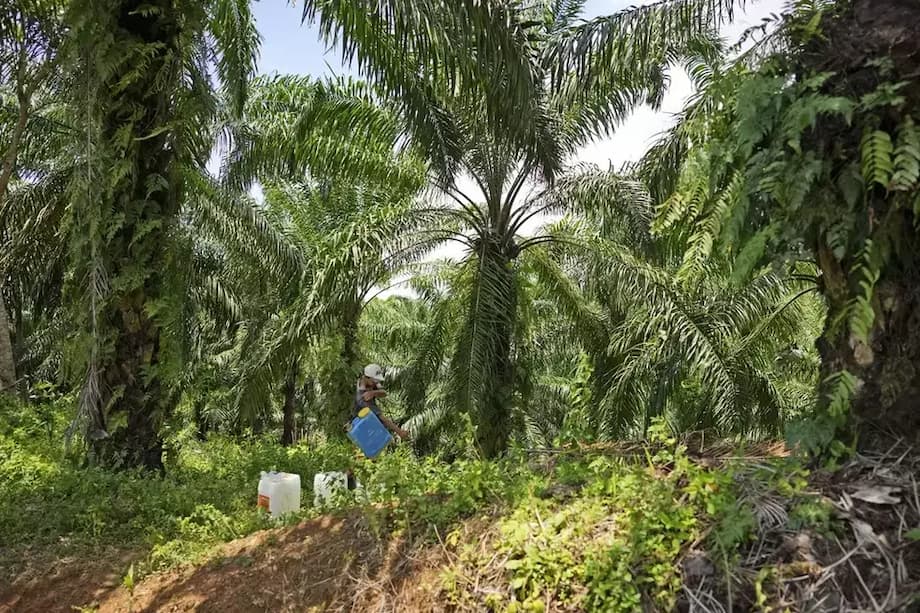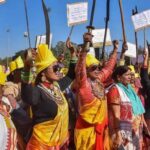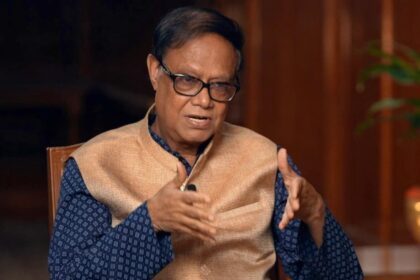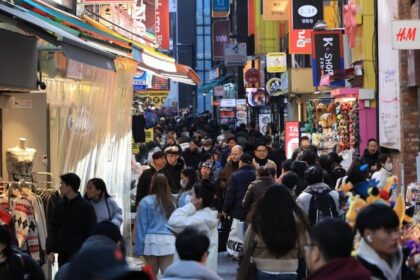A sweeping transfer in the worlds top palm oil producer
Indonesia has begun transferring vast areas of seized oil palm plantations to a new state company, a move that blends law enforcement with an effort to stabilize a strategic commodity. The Attorney General’s Office has handed 1.8 million hectares to Agrinas Palma Nusantara for management in stages, drawn from estates confiscated for operating illegally inside forest zones or tied to corruption cases. Authorities say the total area secured by the interagency task force has reached 3.4 million hectares across palm oil and mining, with a government target of 4 million hectares under state control.
Officials describe the transfer as a way to protect state assets, keep productive trees in care, and route plantation income into public coffers while courts and regulators settle legal questions. In the early phase, enforcement relies on administrative penalties such as fines and payment of illicit gains. Criminal prosecution will follow in cases where owners refuse to cooperate or where investigators tie estates to fraud or money laundering.
The scale and timing of handovers are evolving as authorities verify boundaries, ownership chains, and forest status. Earlier this year, prosecutors put more than 221,000 hectares linked to a major graft case under Agrinas management. Subsequent stages added hundreds of thousands of hectares, including a tranche near 400,000 hectares, pushing the land under Agrinas oversight beyond 800,000 hectares mid year and then well over 1 million hectares. The government now counts 1.5 million hectares physically handed over in four stages and 1.8 million hectares assigned to the state firm for management.
The task force is led by senior officials drawn from law enforcement and security institutions. Indonesia’s defense minister, Sjafrie Sjamsoeddin, who oversees the task force set up by presidential regulation, told Agrinas to maintain output while the transition unfolds. Introducing him and his role, he pressed for continuity of supply to avoid a shock to domestic and export markets.
“Production must not drop. It should even be increased.”
Authorities have encouraged the public to report unlicensed operations still active inside forest zones, signaling that the campaign is not over and that more estates could be seized and vetted before any transfer to state control.
Why the land was seized
Indonesia regulates land under two broad categories: forest zones controlled by the state and non forest areas that can be used for agriculture, urban development, or other activities. Oil palm cultivation in forest zones requires a release of the area from the forest estate and a series of permits. Many of the seized plantations fell short of these requirements, either due to operating in protected areas, failing to secure releases, or extending beyond concession boundaries.
The government created a Forest Area Control Task Force through a presidential regulation in early 2025 with a mandate to identify and reclaim plantations and mines developed illegally in forest zones. The task force maps boundaries, checks permits, calculates state losses, and hands control of confiscated assets to the Attorney General’s Office. Plantations that can be operated lawfully are to be managed under state authority, while areas unfit for planting are slated for rehabilitation and reforestation.
The campaign has swept across Sumatra, Kalimantan, and Sulawesi. Officials say nearly 370 companies are involved in cases where oil palm was established inside forest zones without complete permits. Estates linked to suspected corruption or money laundering have also been targeted. Reclamation goals include recovering illicit profits, reducing environmental harm in protected areas, and cleaning up overlapping claims that have tangled the industry for years.
Authorities have also seized areas associated with illegal mining inside forest zones. These sites face separate audits, with land destined for restoration where mining damaged watersheds or habitats. By putting assets under state management while cases proceed, the government aims to prevent further degradation and maintain oversight of production that supports farmers, mills, and local economies.
How the staged handover works
The transfer process unfolds in phases. First, the task force secures effective control of the plantation, inventories trees and facilities, and clarifies whether the land sits in a convertible or protected forest zone. The Attorney General’s Office then appoints a manager to operate the estate on behalf of the state. In many cases this role has gone to Agrinas, which is directed to collect revenues, pay workers, and maintain plant care.
Officials are still finalizing a uniform fine system for estates found to be in violation. Companies are expected to pay penalties associated with illegal gains and unpaid dues. If owners cooperate with the settlement process, cases may stay at the administrative level. Where investigators find evidence of criminal activity or obstruction, law enforcement will pursue prosecution.
Not all seized land will remain oil palm. Estates that cannot be made compliant or that sit within protected forest are candidates for reforestation. Authorities have said some areas will be retired from planting and restored, while productive blocks outside protected zones may remain in operation under state oversight. The outcome depends on environmental value, legal status, and the costs of bringing estates into compliance with land use rules.
Officials emphasize that the staged approach is intended to reduce disruptions. Oil palms require consistent care, including pruning, pest control, and fertilizer application. A sudden halt can hurt yields for months or years. State managers are tasked with stabilizing operations while courts and ministries make longer term decisions about land status.
Who is Agrinas and what it is expected to do
Agrinas Palma Nusantara is a new state company focused on oil palm management and green energy. It was created to run confiscated plantations, preserve asset value, and channel proceeds into public programs. The company plans to align operations with sustainability standards and Indonesia’s energy strategy, which includes using palm oil in biofuel to cut fossil fuel imports.
As of mid year, Agrinas had been assigned more than 800,000 hectares to manage and then saw the portfolio grow with additional waves of land transfers. Authorities now say 1.5 million hectares have been handed over physically in four stages, and 1.8 million hectares have been assigned for management. The figures vary by reporting date and the stage of verification of boundaries and permits.
Company officials have acknowledged that a sizable part of the seized area needs rehabilitation. Of one large block of land inventoried, only around half the area was immediately productive, with other parts damaged, poorly planted, or in need of replanting. Agrinas reports current output at roughly 6,000 metric tons of fresh fruit bunches per day across the estates it operates, a volume that could rise as damaged areas are restored.
The firm says it operates 17 mills and plans to add dozens more over the next phases of expansion. Government task force estimates suggest that, if the entire assigned area is rehabilitated and managed well, the land could eventually produce several million tons of crude palm oil a year. Authorities have asked Agrinas to support the affordable cooking oil program and to contribute feedstock for bioenergy in line with national policy.
Production and market impact
Short term turbulence is possible as land changes hands from private operators under investigation to a state manager still building capacity. Trees require ongoing care and timely fertilizer to sustain yields. Interruptions to procurement and agronomy can reduce output before recovery sets in. The challenge is to keep fruit bunches flowing to mills while crews replant aged stands, fix roads, and sign new contracts with smallholder suppliers.
Indonesia’s palm oil sector is central to the economy. The country is the largest producer and exporter, accounting for a majority share of world shipments in 2024. Palm oil and its derivatives contribute a material slice of GDP and support millions of workers in plantations, mills, and downstream industries. Stable production is critical for domestic cooking oil supply, biodiesel blending, and foreign exchange earnings.
Industry leaders have cautioned that the transition could dent yields in some blocks if plant maintenance is delayed. They also warn that some seized areas may not be viable as oil palm under current regulations. Where land sits in protected forest or where tree stands are too old or sparse, authorities may decide to reforest rather than invest in recovery.
To capture industry concerns, the chairman of the Indonesian Palm Oil Association, which represents large growers and millers, has pointed to risks if plant care is interrupted during the transition. After introducing the chair and the association’s role, the message focused on the need for consistent agronomy and the potential dip in output if care lapses.
“When previous owners stop care regimes, including fertilizer application, yields can fall quickly. The estates that are transferred will need upgrades and rejuvenation. Some areas may be better returned to forest.”
Market participants will watch monthly output figures and export flows for signs of disruption. If state managers can keep harvesting on schedule while they restore damaged plots, the medium term effect on national supply can be contained. If not, Indonesia could see tighter balances that support prices until rehabilitation and replanting restore volumes.
Environmental and social concerns
Conservation groups and land rights advocates have questioned the strategy of continuing oil palm on land that was carved out of forest without proper permits. They argue that seized estates inside forest zones should be restored to natural cover to protect biodiversity, reduce fire risk, and cut carbon emissions. Environmental organizations also contend that the selection of a new state company to manage seized plantations should have followed a transparent process.
Several civil society groups say communities have borne the brunt of enforcement in some provinces. Reported cases include seizures of plots planted by smallholders in forest areas while large corporate estates with overlapping claims saw slower action. In areas such as Aceh, Jambi, West Kalimantan, and Riau, community representatives report evictions and the closure of local schools when enforcement rolled through, along with proposals for profit sharing schemes that they view as unfavorable.
The principle of Free, Prior, and Informed Consent, which requires consultation with Indigenous peoples before projects alter land they claim, is a recurring issue. Many customary lands do not have full legal recognition, leaving residents vulnerable when maps are redrawn or when state action targets illegal uses. Advocates say that without meaningful consultation and clear pathways to recognition, the current campaign risks creating fresh grievances.
Green groups have also raised alarms about using seized estates to expand biofuel supply. The government frames palm based biofuel as an energy security measure that helps replace imported diesel. Critics counter that if biofuel expansion encourages continued planting in areas that should be restored, environmental goals will suffer. They are pushing for detailed restoration plans for protected areas and for strict thresholds that determine when plantations will be retired and reforested.
Law and governance questions
Legal scholars and industry veterans have flagged concerns about transparency in asset control and ownership status during the transition. Management control by a state operator does not automatically resolve title, concession debts, or overlapping claims. Authorities need to clarify when and how seized assets shift from being case evidence managed on behalf of the state to being long term state assets. Without clarity, there is a risk that former owners remain informally involved while a state firm holds de jure control.
One case often cited by activists involves Register 40 in Padang Lawas, North Sumatra. The Supreme Court determined that the area should revert to forest status. Civil society groups argue that placing such areas under a state plantation manager runs against the spirit of that ruling. They want definitive lists of seized areas destined for restoration and time bound plans to retire oil palm where courts or environmental laws require it.
Officials say that the task force is mapping these outcomes and that restoration will go ahead where required. They also point to the need to secure evidence, maintain trees, and protect jobs during litigation. The government views Agrinas as an interim solution that can keep estates functional while investigators conclude cases, ministries resolve land status, and courts render judgments.
The policy also aims to address a long standing tangle of overlapped land claims. Many companies have faced uncertainty because of mismatches between forestry maps and spatial plans. If the state can clean up boundaries and regularize estates that meet environmental and legal criteria, the sector could gain much needed certainty. The key is to publish decisions, explain the criteria for restoration versus continued planting, and ensure civil society and local communities can review and contest maps before they are final.
Investor and regional ripple effects
The reshuffle carries consequences beyond Indonesia’s borders. Singapore listed plantation companies with assets in Indonesia are assessing exposure to seized or disputed areas. Some have disclosed discussions with regulators, while others have declined comment pending reviews. The uncertainty has encouraged investors to apply stricter environmental, social, and governance screens to holdings tied to Indonesian estates.
Malaysian plantation groups with large footprints in Indonesia are also watching the campaign carefully. Analysts warn that regulatory risk premiums could rise for firms with unresolved land status inside forest zones. Companies that can demonstrate compliance and transparent permitting may benefit over time, while those with questionable estates face higher costs, legal risk, or asset loss.
If Agrinas consolidates management across a large area, the company could quickly become one of the largest oil palm operators by land under care. That brings scrutiny. Investors and watchdogs will expect public disclosure of estate maps, concession documents, mill lists, contractor rosters, and sustainability certifications. Disclosure will also be needed on how revenue flows to the state, what share supports social programs, and how reforestation commitments are met in protected areas.
For Indonesia’s broader economy, the initiative is a test of whether governance reform can coexist with stable commodity output. Achieving both would strengthen the case that oil palm can remain a strategic sector while the country reduces deforestation, honors community rights, and advances biofuel targets.
At a Glance
- Indonesia has assigned 1.8 million hectares of seized oil palm plantations to state firm Agrinas, with 1.5 million hectares already handed over in four stages.
- The task force has secured 3.4 million hectares across palm oil and mining inside forest zones, approaching a 4 million hectare target.
- Early enforcement relies on administrative fines and recovery of illicit gains, with criminal cases for non cooperation or proven crimes.
- Agrinas manages estates while legal and land status issues are resolved, operating 17 mills and planning additional capacity.
- Officials say some seized land will be reforested where planting is not lawful or viable, while productive blocks may stay in operation under state oversight.
- Industry warns of short term output risks if plant care, fertilizer application, and replanting are delayed during the transition.
- Environmental groups argue seized estates in forest zones should be restored to natural cover and criticize a lack of transparent selection of the state manager.
- Land rights advocates report community impacts and call for Free, Prior, and Informed Consent and clear recognition of customary territories.
- Investors are monitoring exposure, with heightened scrutiny for companies that hold plantations with unresolved forest zone status in Indonesia.












